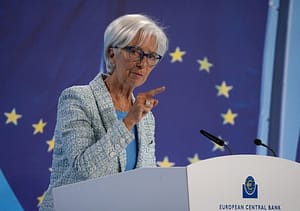Hospitality is one of the backbones of the UK economy, with the sector one of the biggest contributors to GDP.
So, the extension in the existing 75% rate relief for a further year, announced in the Autumn Statement, constituting a £4.3bn lifeline, was broadly welcomed by hospitality businesses. Some 60% of operators had deemed this move a top priority.
However, more measures need to be considered to help underpin the prosperity of this vital business sector.
Challenging backdrop
Beyond economic considerations, there’s a cultural imperative at stake as the sector is important for the UK’s identity and its international reputation. In recent years, the UK hospitality market has endured a range of challenges, including the after-effects of Brexit, and its impact on supply-chains and recruitment, the pandemic, high-energy costs and, most recently, the cost-of-living crisis.
Given this backdrop, it’s critical that the sector has the support it needs as it employs around 3.5 million people and ranks as a top five employer in every region in the UK, accounting for up to 12% of every regional workforce. It represents 10% of UK employment, 6% of businesses and 5% of Gross Domestic Product (GDP).
It has also increased its annual economic contribution by £20 billion to £93 billion over the past six years, a recent UK Hospitality report revealed. Last year the sector contributed £54 billion in tax receipts to the Treasury, generated £20 billion worth of exports and £7 billion in business investment.
London loves hospitality
The most jobs in the industry are found in London, around 500,000, which accounts for some 18% of workers in the UK industry. London’s city centre is by far hospitality’s most concentrated and significant market in the UK, with nearly 3,000 licensed premises, more than Britain’s six next biggest city centres combined.
The Hospitality Market Monitor from CGA by NIQ and AlixPartners shows that central London saw a net decline of 540 licensed premises in the three years between March 2020 and March 2023 – the equivalent to one closure every two days.
This illustrates London’s dependence on commuters and domestic and overseas tourists for hospitality visits. With millions of people working from home and international travel severely restricted in 2020 and 2021, many pubs, bars and restaurants, especially those in the independent sector, became unsustainable.
Boost for consumers and small businesses
Consumer costs remain a critical consideration The relief extension, saving the average pub £12,800 and a small business £20,000, as well as the alcohol duty freeze until next August, are timely and prevent immediate cost escalations for consumers. This is important as it helps avoid a potential ripple effect of passing on costs to consumers, preserving affordability and accessibility.
The freezing the small business multiplier for business rates shields over ‘one million ratepayers’ ensuring that small hospitality businesses are not burdened with additional financial strains.
More should be done
Despite the positive measures in the Autumn Statement, more needs to be done. The absence of any reform of the business rates multiplier, was disappointing. Currently at 51% and rising as a result of inflation by 6.4% will see businesses representing almost two-thirds of the sector’s trade still facing a £150m rates hike.
There have been some calls for the multiplier to be reduced to 30%, at least temporarily and if the sector continues to struggle it is something for the Chancellor to consider in next year’s Spring Budget.
Also disenchanting was the absence of any move on VAT. The 20% rate is burdening struggling businesses with significant tax bills, while reducing it to say 10% temporarily, on say hot food, soft drinks events, accommodation, and visitor attractions, would help hospitality businesses with rising wages, food costs, energy bills and debts.
The burden of property tax in the UK, at 4% of GDP, the highest among OECD countries, discourages potential investment across property-related sectors, notably hospitality, so considering ways to reduce this would help to lessen this burden and give the sector a welcome boost.
Long-term sustainability is key
Of course, the Government can pass measures that will help the sector, but hospitality operators need to look at their own businesses too, how they can put their businesses on a more sustainable long-term footing. This should involve considering further green initiatives to address sustainability concerns, embracing tech and digital advances to help further personalise their services, which is a gathering trend, and supporting their local communities.
If Government and the sector can work in genuine partnership, helping to shape a long-term strategy for hospitality businesses, then there is every chance the country will have the world-class hospitality sector operators want and that the UK needs to spur its economic growth and burnish its international reputation.







Leave a Comment